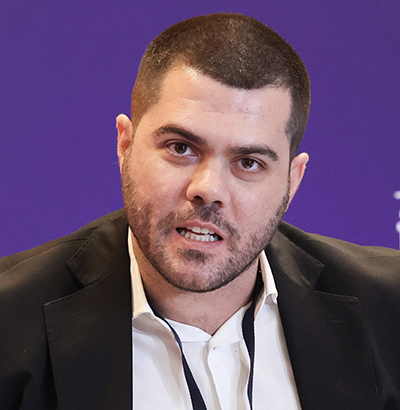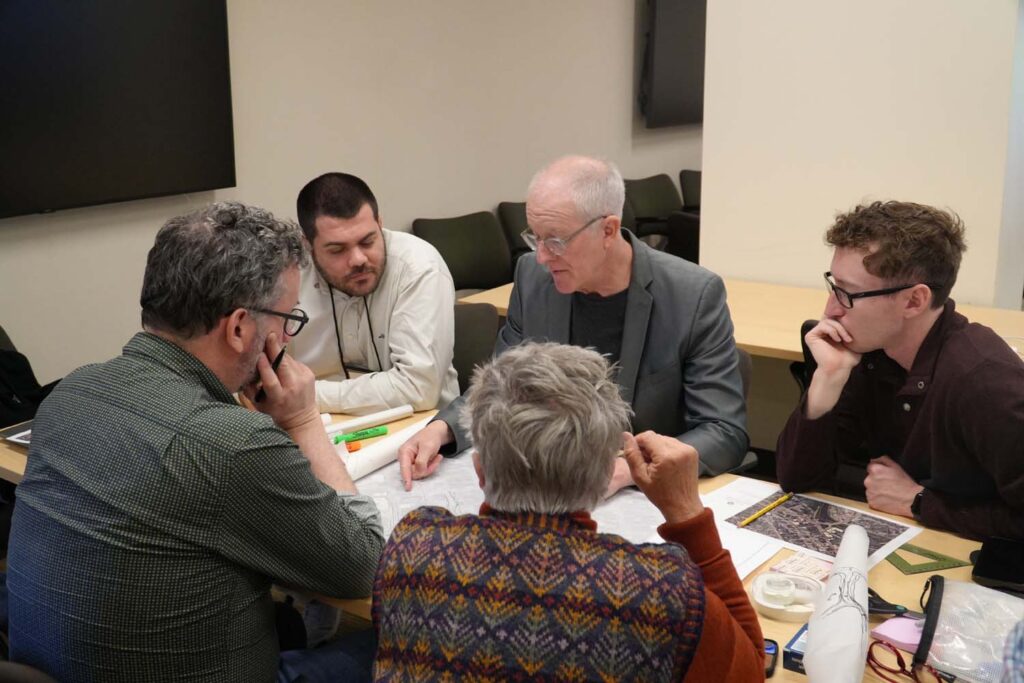
Alexandros-Arkadios Tsavdaroglou is an Urban and Regional Planner who graduated from the Aristotle University of Thessaloniki (Greece) and holds a Master of Science (MSc) in European Spatial and Environmental Planning from Radboud University Nijmegen (Netherlands).
He is the President of Schediasmos S.A., a leading Greek consulting engineering firm established in 1984, specializing in land administration and urban planning services. He has more than 15 years of experience in the field of public works, with expertise in bid management as well as in the project management and coordination of urban planning projects such as General Urban Plans, Local Urban Plans (Comprehensive Plans), and Town Planning Studies.
Since 2010, he has been actively involved in the International Society of City and Regional Planners (ISOCARP). He is also a member of the Permanent Committee on Spatial Planning and Development of the Technical Chamber of Greece / Department of Central Macedonia (TEE-TKM). Since 2020, he has served as an alternate member of the Thessaloniki Council of Urban Planning Affairs and Disputes (SYPOTHA).
Appointed in 2023, he also serves as an alternate member of the Board of Directors of the Association of Consulting Engineering Firms of Greece (SEGM), actively participating in all board meetings.
Alexandros-Arkadios Tsavdaroglou
We spoke with Alexandros after he came to campus for his first program with us in May 2025 — The Walkable City, taught by Jeff Speck.
This is one of our longest-running programs –Why did you choose to sign up this year?
This year presented a pivotal moment for me professionally. As President of Schediasmos S.A., a leading urban planning and consulting firm in Greece, I currently oversee multiple ongoing Local Urban Plans (Comprehensive Plans) across the country, many of which are at a critical implementation stage.
I signed up for the Walkable City course because I wanted to challenge the conventional models we apply in our national urban planning framework and expose myself to innovative, human-centered, and evidence-based methodologies.
The course’s reputation, Jeff Speck’s work, and the timing all aligned perfectly. It felt like the right moment to recalibrate my strategic lens—not only as a planner but also as a leader of a firm that must anticipate what comes next for cities.
We often hear that the tour is the best part of this program – What were the highlights for you? What was most memorable?
The most memorable part of the program was the Watertown Square design charrette. It brought theory into action in a way that was intellectually rigorous, practically grounded, and emotionally engaging.
As someone used to leading teams and managing deliverables, it was refreshing to co-create in real time with peers from different countries and perspectives.

The exercise condensed years of planning tension into a few hours of design clarity—reminding me why I entered this field in the first place.
Also, the class discussions led by Jeff Speck—especially when he openly critiqued real-world designs—were both generous and exacting. They trained my eye to see design failure not as a technical glitch but as a civic missed opportunity.
We believe all our programs offer immediately applicable takeaways for participants’ work. How has this program impacted you and how you view urban planning?
The program has significantly deepened my appreciation for the value of small-scale, design-driven interventions in shaping urban life.
Coming from a context where planning is heavily procedural and often shaped by rigid legalistic frameworks, this course reframed the urban project as something tangible, iterative, and human-centered.

Jeff Speck’s four conditions for walkability—useful, safe, comfortable, interesting—gave me a new vocabulary and a new structure to rethink the Greek city, particularly the smaller regional centers where our firm works. I now feel more equipped to argue for interventions that are not just legally compliant but experientially rich. This will influence how we guide our teams, communicate with municipalities, and structure deliverables to go beyond zoning and land use into livability and vibrancy.
What are the most common urban planning challenges in Greece, and how does Jeff Speck’s Theory of Walkability speak to those challenges?
Urban planning in Greece faces three major challenges:
- Regulatory Fragmentation: Planning remains overly bureaucratic, with overlapping legislative layers and slow implementation.
- Car-Centric Legacy: Most Greek cities were reshaped in the postwar decades around the private car. Narrow sidewalks, excessive on-street parking, and lack of pedestrian infrastructure are ubiquitous.
- Weak Public Space Culture: The physical presence of public space often exists, but the design quality, comfort, and everyday programming are lacking.
Jeff Speck’s theory directly addresses these issues. The focus on street-level experience, walkability and the integration of form-based thinking offer a direct counterbalance to the overly procedural, planning models we often face.
Importantly, walkability is not just about movement; it’s about meaning and memory.
His framework has helped me articulate a more holistic vision for Greek municipalities that combines functionality and place identity, especially in areas affected by decline, monoculture development, or environmental disruption.
